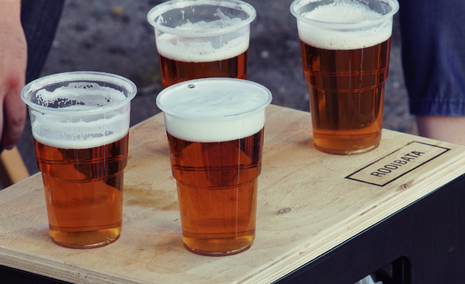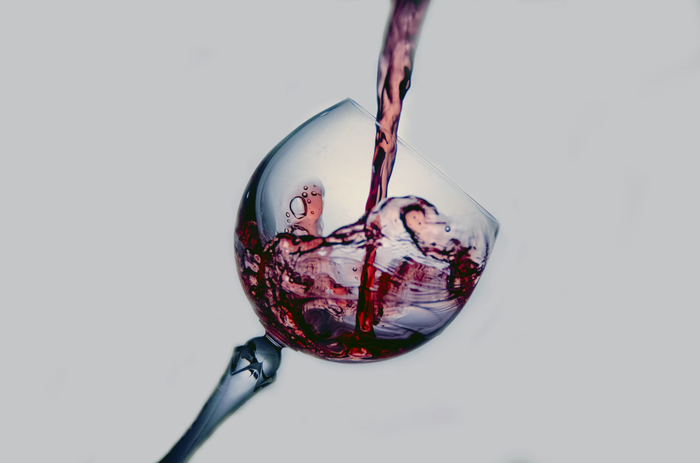Let Cambridge drinking culture off the hook
Give us a break, in such an intense atmosphere, students across the city have a right to get drunk

Every two weeks, the history society at my college hosts a talk. The timeline for the event goes a little like this: pre dinner discussion, presentation, questions, informal discussion over a very formal dinner. I prefer to mark it a little differently: a glass of wine pre-talk, and one to nurse during, a bottle of white over dinner, and then maybe a pint or two in the bar. Unsurprisingly, this doesn’t always go so well – my long suffering next door neighbour (and wonderful friend) can attest to this, remembering the bin she had to wedge next to my bed and the anti sickness tablet she had to wedge between my back teeth.
I’m the first to admit that drinking culture in Cambridge is weird – as an article in Varsity a couple of weeks ago carefully laid out. After being told by a fellow at my introductory meeting in first year that excessive alcohol consumption kills brain cells, I watched as he filled, and refilled, my glass at matriculation dinner just the next evening. We’re encouraged to drink in an academic setting, and after a long week’s work, we’re expected to numb our burnt-out brains with a blackout drunk night at one of the objectively worst clubs in the UK. But the idea that we are sacrificing our health and relationships in order to pretend that Cambridge drinking culture is normal, thereby making it abnormal (I’m lost too), just doesn’t make sense to me.
“Working in such an academically rigorous environment, we tend to forget that we are allowed to be stupid at least once a week.”
As much as drinking socs may give us a boozy name, Cambridge students don’t actually drink that much. Allegedly, we only spend £19 per week on alcohol – less than half the Durham standard. For anyone checking that source, I apologise – I’m not normally one to trust The T*b either, but it was that or UniFreshers.
When we do drink, unlike at some other unis, we have more options than bingeing. College bars offer a (relatively) cheap way to socialise and unwind, and formal dinners undermine the dangerous culture of drinking on an empty stomach. I’m by no means saying you have to have a glass of wine in hand to enjoy your night, and I’ve – shocker – made friends sober. People who can’t, or choose not to, drink, won’t have a worse time than anyone else. But there’s no use shaming those of us who’d rather do as the Dutch do (I assume) and reach for a chemical crutch.
“let’s stop intellectualising it, and just be sensible”
Even if the Cambridge calendar were dated by levels of excessive drinking, we’re young. Is passing out in a Revs toilet the best, classiest, or healthiest decision I’ve ever made? Of course not. But at 19, I don’t think anything else should have been expected of me. Working in such an academically rigorous environment, we tend to forget that we are allowed to be stupid at least once a week. Be safe, stay with friends, and don’t walk home alone. But go on, live just a little.
The actual darker side of Cambridge drinking isn’t related to how much you drink – as much as some people may imply otherwise – but how much that is taken advantage of. I’m not trying to minimise the experiences students have had in the context of heavy drinking at University. We all know someone who’s been a target, if we’re lucky enough to have avoided it ourselves. Being realistic, I know that drinking puts me more at risk. So my friends and I keep an eye on each other, we watch our drinks, and we (try to) know our limits. The FOMO you might feel at missing a club night isn’t worth the danger of being spiked, and we all know not to go out alone. But to lump this risk in with a criticism of drinking culture in general is to excuse perpetrators and hold victims culpable.
Cambridge drinking culture isn’t all bad. In fact most of the time, I have it pretty perfectly arranged. You can scatter my ashes in the Eagle smoking area, and never do I feel more Cambridge-y (I refuse to use the word Cantabridgian) than when I’m picking an academic’s brain about bystander culture in Nazi Germany with the slight buzz that gives me the courage to do so. So if I can be allowed to make one hypocritical plea: let’s stop intellectualising it, and just be sensible.
 News / Cambridge students set up encampment calling for Israel divestment6 May 2024
News / Cambridge students set up encampment calling for Israel divestment6 May 2024 News / Cambridge postgrad re-elected as City councillor4 May 2024
News / Cambridge postgrad re-elected as City councillor4 May 2024 News / Some supervisors’ effective pay rate £3 below living wage, new report finds5 May 2024
News / Some supervisors’ effective pay rate £3 below living wage, new report finds5 May 2024 Fashion / Class and closeted identities: how do fits fit into our cultures?6 May 2024
Fashion / Class and closeted identities: how do fits fit into our cultures?6 May 2024 News / Academics call for Cambridge to drop investigation into ‘race realist’ fellow2 May 2024
News / Academics call for Cambridge to drop investigation into ‘race realist’ fellow2 May 2024






